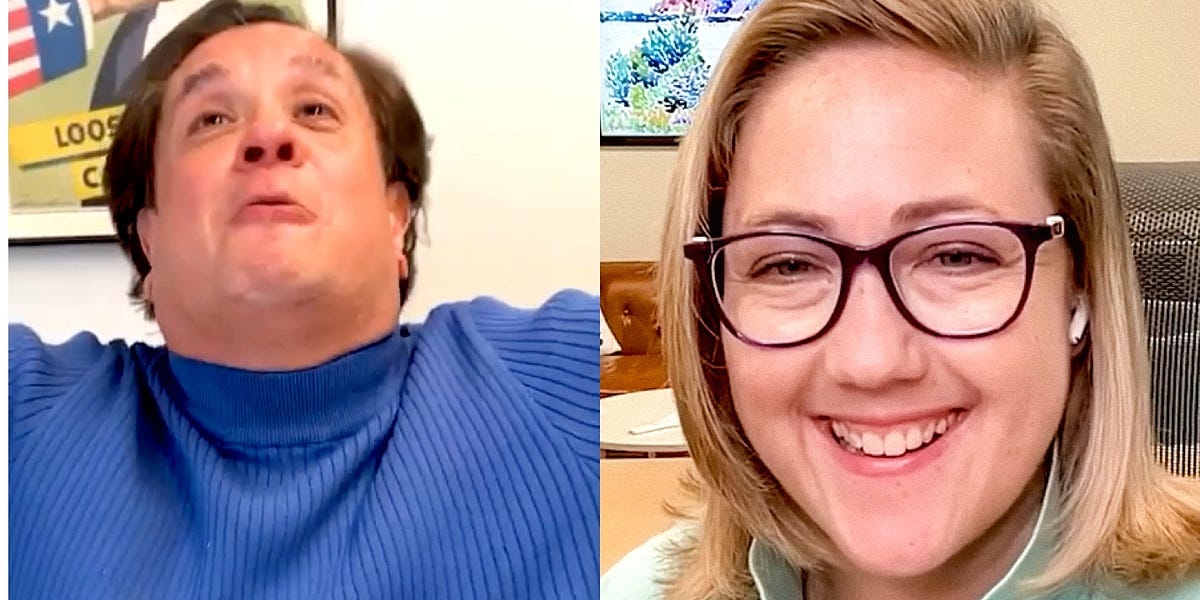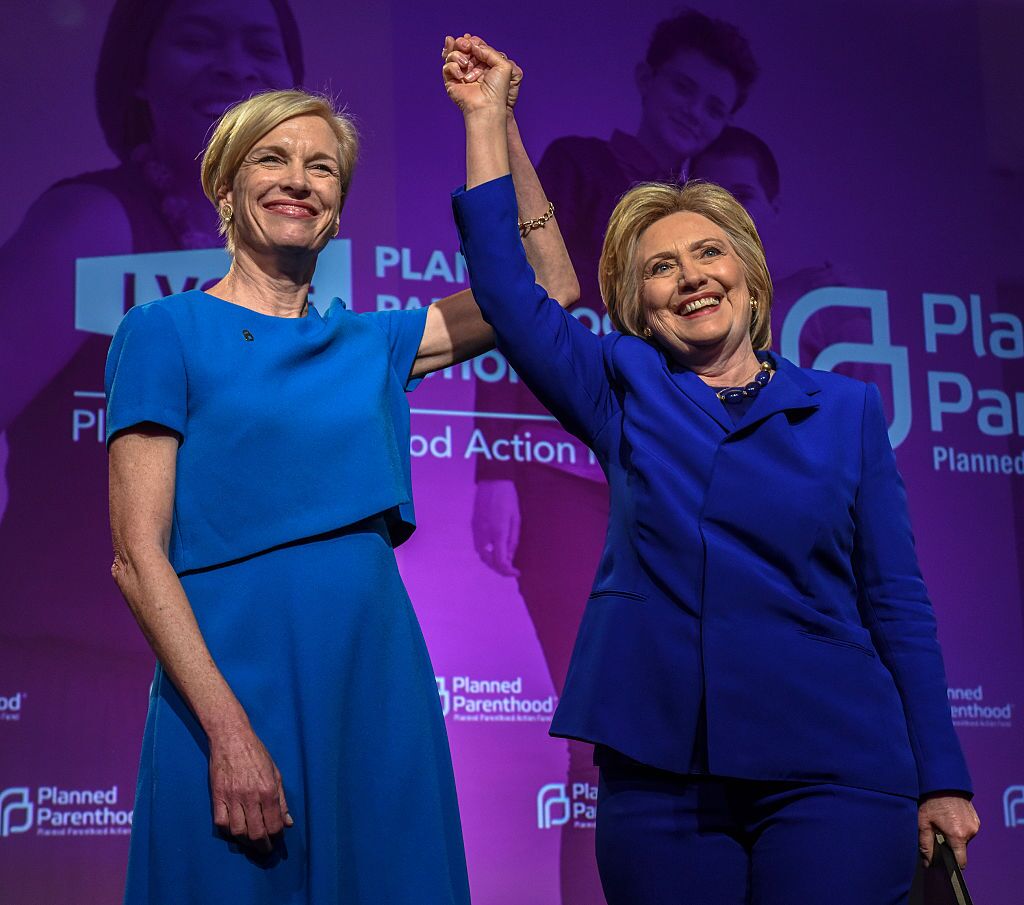
The Dumbest Fight Trump Ever Picked
May 3, 2025
The Writer Who Knew The Cost of Freedom
May 3, 2025The late Cecile Richards transformed Planned Parenthood as its longtime president—while steadfastly defending the organization against antiabortion attacks.
This article appears in the Spring 2025 issue of Ms. Join the Ms. community today and you’ll get issues delivered straight to your mailbox.
In fall 2015, Planned Parenthood president Cecile Richards was called to appear before the Oversight and Government Reform Committee of the U.S. House of Representatives. For months, antiabortion activists had circulated deceptively edited videos with the bogus claim that Planned Parenthood was unlawfully profiting from the sale of fetal tissue. Republicans in control of the chamber seized on this implausible accusation as an excuse to defund the organization that for decades had steadfastly provided family planning services and healthcare of the highest quality as a trusted government contractor.
Antiabortion protesters packed the hearing room, alongside Planned Parenthood supporters and a large platoon of newspaper reporters and TV correspondents, including, of course, those of Fox News. Retaining her composure throughout, Richards calmly parried rapid-fire questions and endured constant interruptions from Republicans (including one, in particular, who displayed little interest in the facts)—just looking to score points with their base. For everyone else, however, she provided a compelling lesson about the humane and often lifesaving services Planned Parenthood provides, including cancer screenings, birth control and, yes, abortion.
The hearing finally wrapped up after five long hours. The committee announced that it had found no evidence of wrongdoing. And the organization responsible for the incendiary videos was indicted on 15 felony counts. But by then the cameras were off, and the goal of inflicting at least a measure of reputational damage had been accomplished.
Former Secretary of State Hillary Clinton tuned in to the proceedings that day. Just one month later, she was dragged before the House Select Committee to testify for hours about the 2012 terrorist killing of a U.S. ambassador in Benghazi, Libya. In a moving memorial tribute earlier this year at the Ford Foundation, Clinton recalled that during her own inquisition she made every effort to channel Richards’ “grace under pressure.”
Richards died early in the morning on Jan. 20 at the implausibly young age of 67. America lost one of its most audacious and charismatic defenders of women’s health and rights just when we needed her most—hours before the inauguration of Donald Trump, whose first-term appointees to the Supreme Court gutted the constitutional protection of abortion rights and whose second term imperils the rights of women in additional myriad ways.
I first met Richards during the run-up to the 2000 presidential election. Then-President Bill Clinton had remained resolute in his defense of abortion rights, despite ramped-up pressure and millions of dollars of spending in opposition. But a number of states had enacted limits on abortions after 1992, when the Supreme Court in Planned Parenthood v. Casey opened the door to restrictions on access. Clinics were being bombed, patients harassed, doctors and staff threatened and even killed. Meanwhile, the Republican party, currying favor with fundamentalist Protestants and Catholics, doubled down on its opposition not just to abortion, but also to sex education and contraception, especially for young people.
An accomplished grassroots organizer with experience in organized labor as well as in politics, Richards was intent on mobilizing a door-to-door effort to register a million new abortion-rights voters. With funding from Jane Fonda and Ted Turner, she worked with activists in then-swing states like New Mexico, where Al Gore won in 2000, and Florida, where only a few hundred disputed ballots infamously cost him the presidential election.
In 2004, Richards was back at this same challenging work as the founding leader of America Votes, a new organization created to harness the electoral power of a consortium of issue-based progressive groups, including environmentalists, women’s rights activists, labor unions and Planned Parenthood, which as an existential matter had created a political arm to endorse candidates and work in elections.
Shortly thereafter, I was called by the search firm looking for a new president for Planned Parenthood and its affiliated political action committee. “Are you kidding?” was Richards’ initial response when I suggested she take the job. But after extended consultation with her devoted husband, fellow labor organizer Kirk Adams, and with her illustrious mother, Ann Richards, the one-term former governor of Texas and celebrated progressive activist, she changed her mind.
Family meant everything to Richards. She and Adams had three adored children: Lily, the eldest, and twins Hannah and Daniel. A first grandson was born just as Richards became ill.
“She was a trailblazing activist because she was a good mom, not in spite of it,” Lily observed in her own eulogy at Ford.
And the rest, as they say, is history. Over 12 years at its helm, Richards transformed Planned Parenthood, growing its membership to nearly 11 million active supporters. As she loved to crow, this made the organization nearly twice the size of the National Rifle Association, which had for decades flexed its political muscle and stood in the way of reasonable gun control. She challenged both parties to take notice, yet it was under her watch that Planned Parenthood became increasingly embattled. Her heart almost broke when her beloved home state of Texas succeeded in stripping the organization of funding.
Contradictions abounded. Richards notched a historic political victory when the Obama administration included a contraceptive mandate in the Affordable Care Act. The U.S. for the first time followed the lead of most other developed countries, providing not just the right to contraception but also insurance coverage to pay for it. But around the same time, Obamacare authorized funds for comprehensive neighborhood-based healthcare centers that in many cities began to compete for clients.
Richards nonetheless remained an inspired steward of a large and complex institution. She was a superb listener and mentor—“our golden gazelle,” as staff members affectionately referred to their tall, blond, elegant leader. She ramped up the work of Planned Parenthood’s medical, educational, legal, advocacy and lobbying teams in New York and Washington, D.C. She oversaw a valiant effort to consolidate its often unwieldy network of state and local affiliates, introducing cost savings efficiencies made possible by modern technologies.
Technology was where she exhibited special talent. Even as its clinic population declined, Planned Parenthood grew its digital platform enormously, providing information about sexuality and reproduction to an audience of 20 million visits per month at its height, a little recognized achievement. Richards also saw the potential of innovations in medicine before many others did, sending staff from New York to train clinicians across the country in how to prescribe emergency contraception and medication abortion. Today, the abortion pill accounts for 63 percent of all recorded pregnancy terminations in states without total abortion bans.
A prodigious fundraiser, Richards helped raise a staggering amount in honor of Planned Parenthood’s 2016 centennial, vastly expanding its endowment. She logged thousands of hours traveling around the country to help struggling affiliates provide critical care that patient reimbursements never fully cover. And through the PAC, she harnessed countless political dollars.
After leaving Planned Parenthood, Richards founded Supermajority, an organization to mobilize women voters. During her illness, she co-launched Charley, a chatbot that provides information on how to access abortion, and Abortion in America, a platform for women to tell their own abortion stories on popular apps like Instagram and TikTok.
Two months before Richards died, President Joe Biden recognized her with the country’s highest civilian honor, the Presidential Medal of Freedom.
Richards’ cherished friend, ACLU executive director Anthony Romero, in his memorial remarks invoked Maya Angelou’s powerful imagery: “When great trees fall, rocks on distant hills shudder. … And when great souls die, after a period peace blooms, slowly. … Our senses, restored, never to be the same, whisper to us. They existed. They existed. We can be. Be and be better.”
And so we must.
Great Job Ellen Chesler & the Team @ Ms. Magazine Source link for sharing this story.





